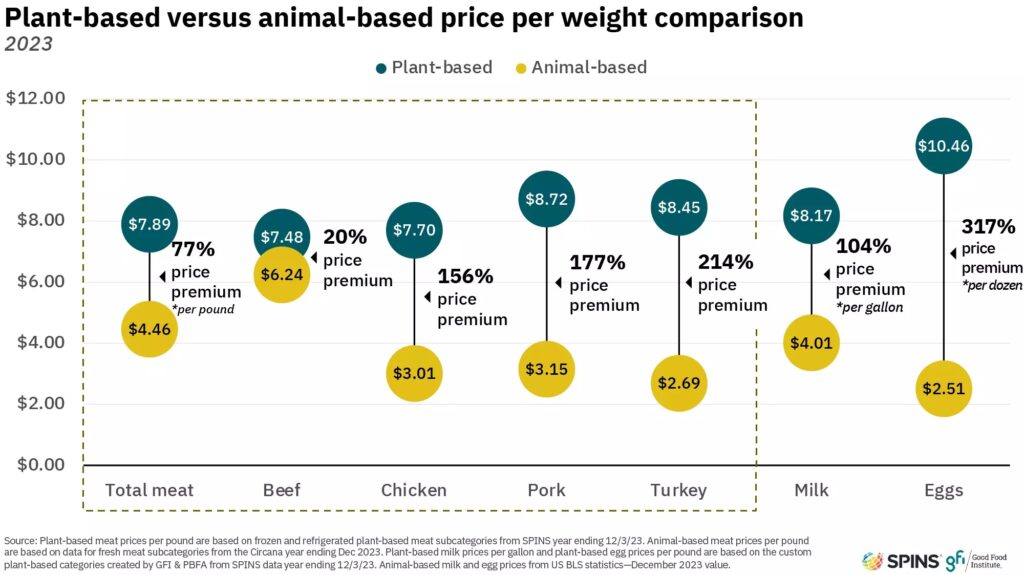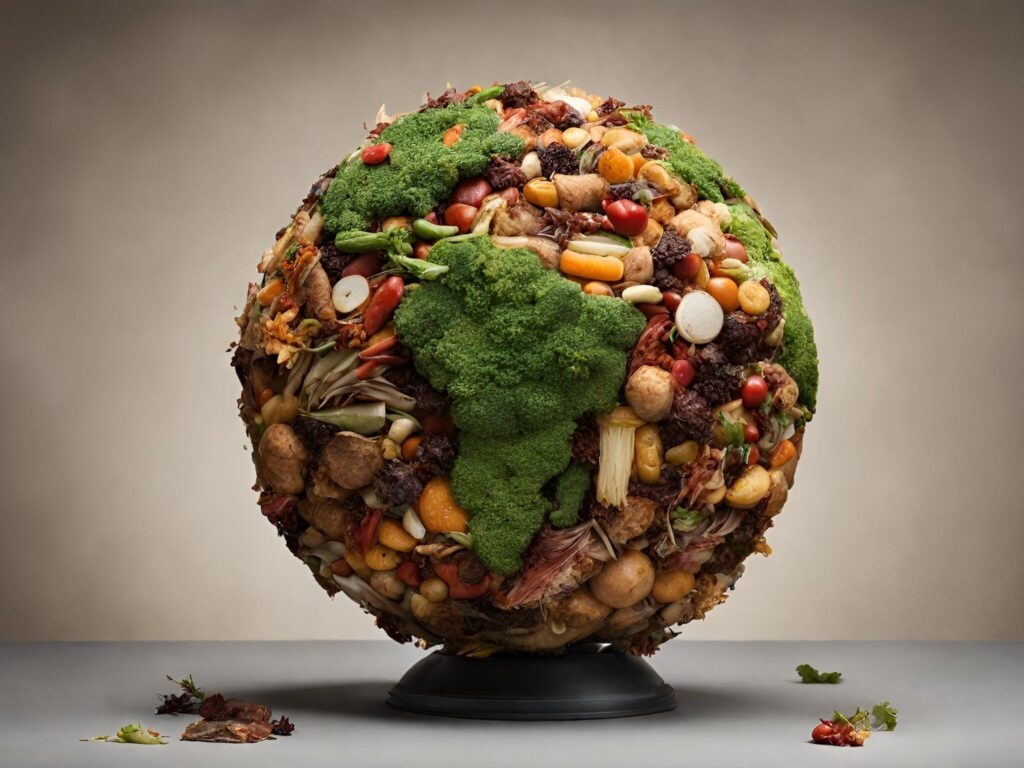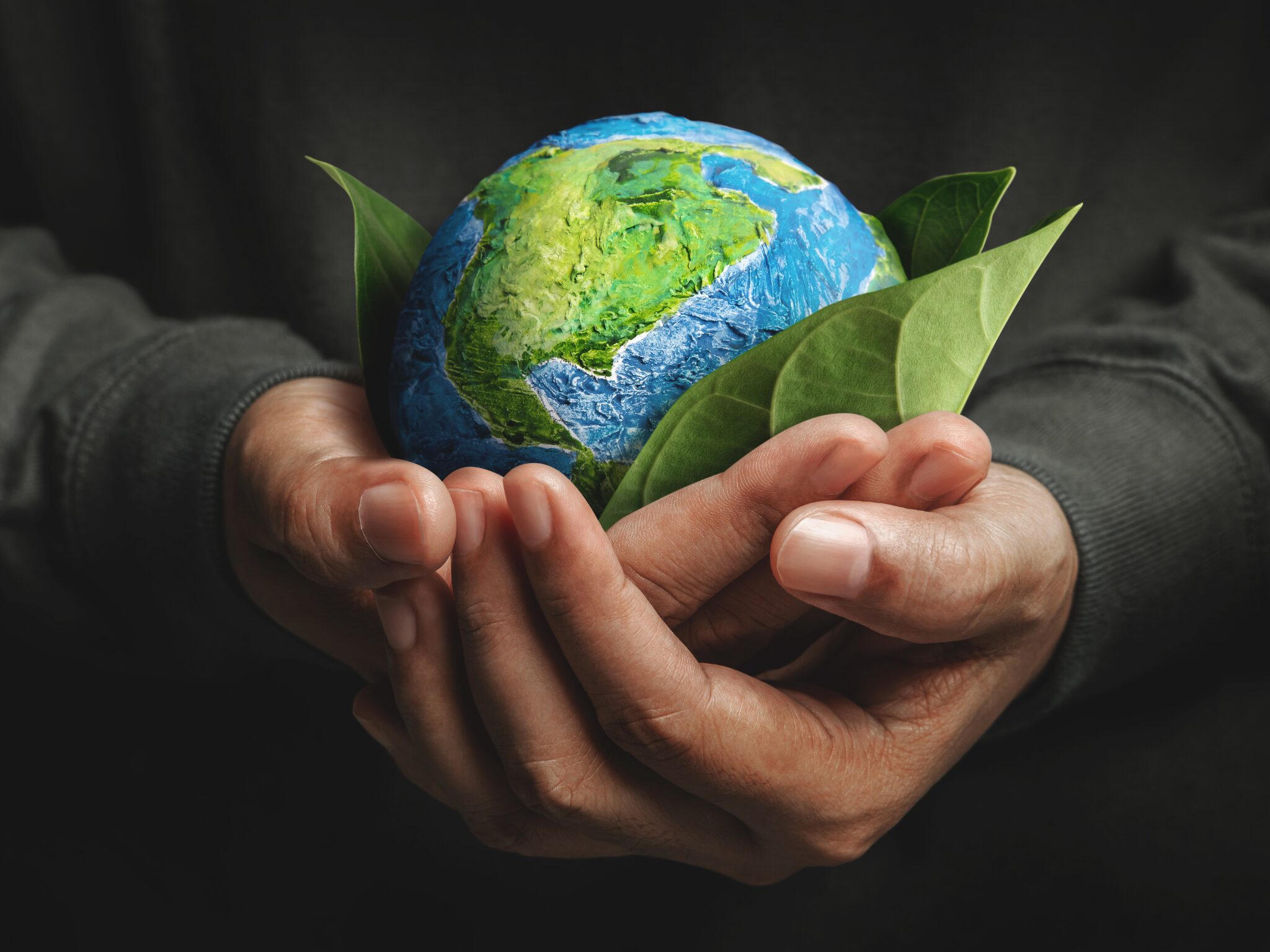7 Mins Read
As we celebrate Earth Day, the importance of transforming our food system is higher than ever – here are 10 things you should know about the food we eat, and its impact on the planet.
Food system action is paramount
The global food system is responsible for a third of all emissions, but while the UN promised a food-centric COP28 in Dubai last year, the main focus for world leaders was on fossil fuels. While a phaseout of pollutants like oil, coal and natural gas is absolutely crucial for the future of the planet, it won’t matter if we don’t take action on food and agriculture.
This is because, at current rates, the world will emit around 1,356 billion tonnes of greenhouse gases by the end of the century. But even if we stop all emissions from non-food sectors (energy and industry), food emissions alone will surpass the Paris Agreement goal of limiting post-industrial temperature rises to 1.5°C by 2100.
And to have a 67% chance of staying below a 2°C rise, we can only emit 49 billion tonnes of CO2e from all non-food sectors for the next 80-odd years – but this figure equates to just over a year of current fossil fuel emissions. Put simply, there’s no way we’re meeting our climate targets by ignoring the food system.

Meat consumption is on the rise
Despite the abundance of data about the meat industry’s climate impact – it accounts for 60% of all food emissions – meat consumption is projected to continue growing. In 2011, the FAO forecast that by 2050, the world will be eating 73% more meat. And last year, the WHO noted that the intake of red meat – which is even more polluting than other meats – will swell by 50% by mid-century as well.
By this year, the global population is set to surpass 10 billion, and an increase in animal product consumption is going to impede our ability to feed the world. This is because, despite using up 78% of agricultural land and 39% of all habitable land, livestock-derived foods are only responsible for 18% of calories and 37% of protein consumed around the world.
Scientists say we need to reach ‘peak meat’ next year
A survey of 210 climate scientists and academics from around the world has made it quite clear that these experts believe we need a paradigm shift in protein consumption. Over three-quarters of them believe livestock numbers must peak by 2025, following which, 89% and 75% said their emissions should fall rapidly in high- and middle-income countries, respectively.
The poll also suggested that the livestock sector’s emissions must be halved by 2030, noting that reducing these is key to limiting temperature rises to 2°C. Plus, 85% feel it’s important for human diets to shift from “livestock-derived foods to livestock replacement foods”, with plant-based analogues considered the “best available food” for better health and emissions outcomes.

The UN’s stance on food is tricky
As an authority in global policymaking, the UN’s position on agrifood systems is – to put it mildly – quite important. But the organisation and its various departments have been relatively mum on this for years The FAO, in fact, has been accused of censoring its own reports that tried to show the true impact of livestock farming on the planet. Its much-awaited roadmap for 2050 has also been criticised for not recommending a transition away from animal to alternative proteins.
That said, one of the most resounding endorsements for novel proteins came from the UNEP in the midst of COP28, when it produced a landmark report that explicitly addressed the health and environmental detriments of meat and dairy consumption, and how alternative proteins can significantly improve both human and planetary health.
UNEP executive director Inger Andersen stated that these foods can lower the pressure on agricultural lands, reduce emissions and help address the triple planetary crisis of climate change, biodiversity and nature loss, and pollution and waste.
Plant-based sales have stagnated – but not declined
Large parts of the media have been charting the plant-based industry’s decline in sales and funding in the last couple of years. But it turns out that while, yes, companies in this sector clearly struggled, sales volumes for their products in 2023 represented a tiny increase, instead of the opposite.
Euromonitor data suggests that global retail sales for plant-based meat, seafood and dairy were up from $28B in 2022 to $29B in 2023. That is despite the US witnessing a minor dip, and several businesses having closed down, signalling that interest in plant-based food is still strong.

Climate change is driving up food prices
The relationship between climate change and food is reciprocal. Extreme weather events have been ravaging crops and threatening food supplies around the world, but they’re also affecting inflation and causing a hike in food prices at a time when the soaring cost of living has already changed the way we live.
A peer-reviewed study earlier this year suggested that the climate crisis could increase the cost of food by as much as 3.2 percentage points annually, while average inflation could rise by up to 1.2 points. Even in a best-case scenario, food inflation would hike by 0.9 percentage points until 2035, and, in both instances, the more vulnerable countries in the Global South (especially those in Africa and South America) will be the hardest hit.
Gap remains between plant-based and animal protein prices
Price parity has been a long-running debate about vegan food, and while there were estimates a few years ago that plant-based meats would reach price parity with conventional meats by 2025, it hasn’t quite had that effect on a large scale (some supermarkets have matched prices on their private-label products).
According to an analysis by alternative protein think tank the Good Food Institute, the cost of plant-based foods increased more than conventional meat and the food sector as a whole in 2023. It means that beef is the closest to price parity, with vegan analogues 20% more expensive. But the average price premium was 77% for plant-based meat and seafood, 104% for milk, and 317% for eggs.

Your bank is probably funding the livestock industry
Lately, there has been a spate of investigations into how banks have been contributing to climate change with their investment decisions. In the US, 58 banks provided $134B in financing to meat, dairy and animal feed corporations between 2016 and 2023, with just three – Bank of America, Citigroup and JPMorgan Chase – making up more than half of this amount.
Looking at a global scale, banks and investment firms have issued $615B in credits to the world’s 55 largest livestock companies since 2015. And the International Finance Corporation (IFC) – a World Bank Group member owned by 186 member countries – has similarly injected $1.6B into factory farming projects between 2017 and 2023. These institutions are facing calls from activists to move away from financing planet-harming practices.
We waste a billion meals every day
Over 780 million people are facing hunger across the world, but households are throwing away a billion meals daily, leading to more than $1T in economic losses. In fact, a third of all food produced is wasted or lost, and households are responsible for 60% of that.
Addressing this is essential, considering that food waste contributes to 8-10% of global emissions. The 2022 Kunming-Montreal Global Biodiversity Framework has noted its link with biodiversity loss and laid out the goal to cut food waste by 50% by 2030. One report has pointed to reduced portion sizes as a solution to this problem.

Government support for alt-protein is mixed
2024 is set to be a milestone year for regulatory approvals of cultivated meat and precision-fermented proteins, with a bunch of companies already getting the go-ahead in various countries. Some governments – like Canada, the US, Germany, the UK and the EU – are also pumping in capital to support the development of these industries, while others are incorporating plant-based foods into their national plans.
However, substantial legislative hurdles remain. Plant-based meat and labels remain a thorny subject in many parts of the world, although the real battle right now lies with cultivated meat. Legislators from several US states and EU countries are attempting to ban or restrict these novel proteins, with Italy passing this law last year, and Florida now on the verge of doing so too.
In the larger context of the climate fight, these are steps in the opposite direction. There’ll be lots of talk about sustainability and fossil fuels and plastics and whatnot this Earth Day. Again, all that is important – but we need to reverse our course with the food system if we have any chance of keeping the planet safe.



